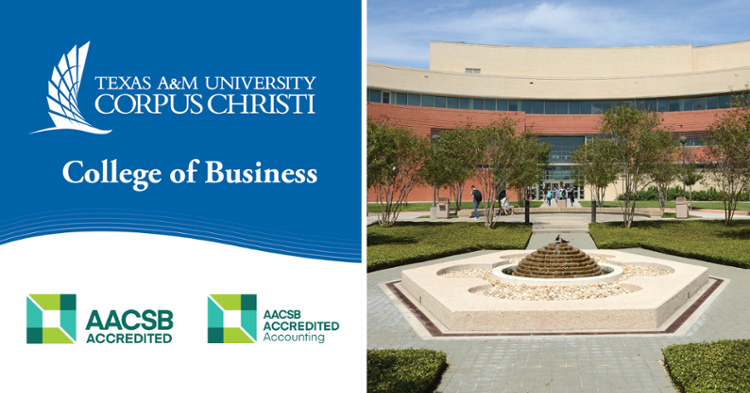Island University Professor Studies Source of Happiness, Even During Pandemic’s Isolation
CORPUS CHRISTI, Texas – The isolation resulting from the COVID-19 pandemic is leading many people to think about what really matters in life, including what makes a person truly happy, and it’s not money.
Texas A&M University-Corpus Christi College of Business Professor Dr. Lawrence Murphy Smith, along with Murray State Professors Dr. Kenneth Sutrick and Dr. Solomon Antony, teamed up to write a recently published paper titled, “Analysis of the Relationship of Happiness to Economic Achievement and Other Factors in US States.” Their paper was published in the International Journal of Work Organisation and Emotion.
“Our study examines how happiness, aka life satisfaction, relates to economic achievement and other factors, including government spending, religiosity, and political affinity,” said Smith, Professor of Accounting at Texas A&M’s RELLIS Campus. “Findings indicate that compared to other countries, people in the United States are relatively happy. At the same time, depending on factors such as religiosity and political affinity, Americans are more or less happy.”
Texas is among the happier states, ranked at 16 out of 50. Louisiana was the happiest and New York was unhappiest. The top 10 happiest states, in order, are Louisiana, Hawaii, Florida, Tennessee, Arizona, Mississippi, Montana, South Carolina, Alabama, and Maine. The 10 unhappiest states, in order, are New York, Connecticut, New Jersey, Michigan, Indiana, California, Illinois, Ohio, Massachusetts, and Rhode Island.
Based on data from each state, happier states are significantly more religious and more politically conservative, which affirms prior research on the connection of happiness to religiosity and political views. The data also shows that happier states are not wealthy and had a significantly lower per capita gross domestic product (GDP).
“No one disputes the advantages of money in terms of paying for a bigger house or a fancier car, but research shows that such material things do not equate to happiness,” Smith said.
People might suppose that economically prosperous states such as New York and California would be ranked high in happiness, but in fact they are ranked extremely low, 50th and 45th, respectively.
“This might be due to high home prices, liberal politics, low religiosity, and extreme congestion,” Smith said.
States high in happiness, but low in income, include Mississippi, ranked 50th in per capita GDP but sixth in happiness; South Carolina, ranked 48th in per capita GDP but eighth in happiness; and Florida, ranked 43rd in per capita GDP but third in happiness.
“Thereby, they affirm the old adage that ‘money can’t buy happiness,’” Smith said.
Regarding religion and politics, on average the more religious a state, the happier it is. For example, Alabama and Mississippi, tied for most religious, were ranked 6 and 9, respectively, for happiness. Massachusetts and New Hampshire, tied for least religious, were ranked a low 42 and 27, respectively, for happiness.
“Politically conservative states on average were happier than politically liberal states,” Smith said. “This might be due to the fact that political conservatives tend to be more religious and married, both positively correlated to happiness.”
A prior study noted that 52% of politically conservative, married-with-children, religious people are very happy; while only 14% of politically liberal, single-without-children, secular people are very happy.
“These findings are meaningful in that business employers and community leaders can benefit by understanding factors that play a role in people’s happiness, aka satisfaction with life,” Smith said. “While past research shows that wealth and income are important to people’s well-being, this study offers evidence that other factors can be more important to personal happiness.”
In hiring employees and locating operations, businesses should consider differences in happiness levels, Smith said, as happiness is related to better work performance, ethicality, volunteerism, and ability to handle daily life.
“Businesses can facilitate happiness among employees by supporting work-life balance of employees, being parent-friendly, being marriage-friendly, and enabling employees to integrate their spiritual values in their job roles,” he said. “In like manner, community leaders should consider ways that they can help citizens achieve higher levels of happiness.”
The findings are especially interesting when considered in the context of the current health crisis.
“The COVID-19 pandemic is causing many people to reflect on what really matters in life,” Smith said. “So, while the pandemic is a very terrible event, there may be some good that comes out of it, if people re-set priorities to make a positive impact on their families, communities, and nation.”

